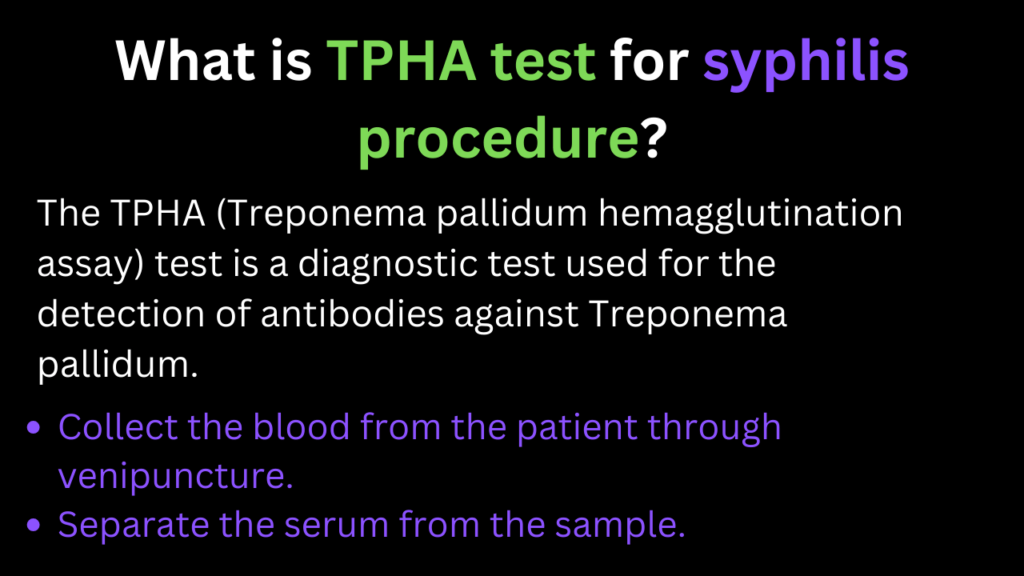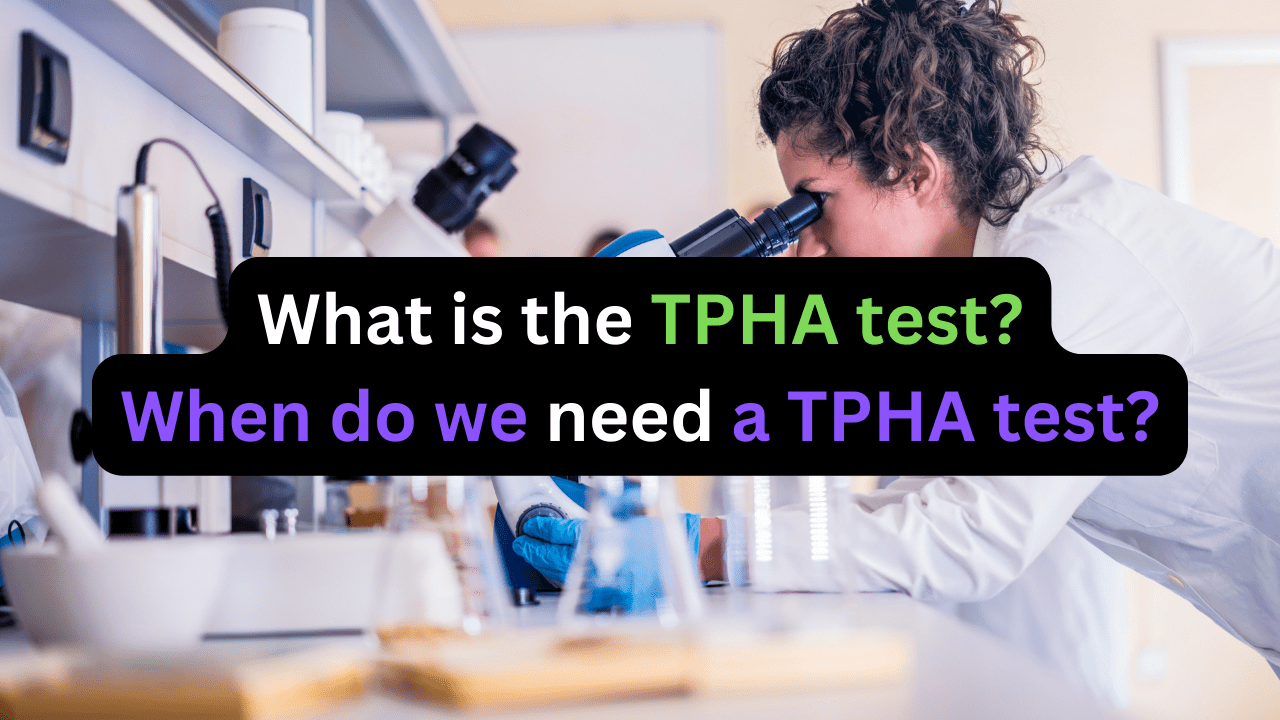Here you will learn about “What is TPHA test for syphilis procedure”.
The TPHA (Treponema pallidum hemagglutination assay) test is a diagnostic test used for the detection of antibodies against Treponema pallidum.

This test is a specific and sensitive method for diagnosing syphilis and is often used as a confirmatory test.
TPHA test principle
The TPHA test is based on the principle of hemagglutination, which involves the clumping of red blood cells. When patient serum containing antibodies against Treponema pallidum is mixed with particles coated with the bacterium, the antibodies in the serum react with the antigens, leading to visible clumping or hemagglutination.
TPHA test for syphilis procedure
- Collect the blood from the patient through venipuncture.
- The collected blood is allowed to clot, and the serum is separated from the clotted blood cells.
- Treponema pallidum antigens are attached or coated onto red blood cells.
- The coated cells are mixed with the patient’s serum. If the patient has been exposed to Treponema pallidum and has antibodies against it, the antibodies in the serum will react with the coated red cells.
- The mixture of serum and coated cells is allowed to incubate. During this time, if antibodies are present, they will bind to the antigen-coated cells.
- After incubation, the test is observed for hemagglutination. If antibodies exist in the patient’s serum. The clumping of the coated cells will be visible. This clumping is indicative of a positive reaction.
TPHA test for syphilis result interpretation
- Clumping of the coated cells is visible in the positive result.
- If there is No visible clumping in a negative result.
The test results are interpreted based on the degree of hemagglutination. A positive reaction suggests the presence of antibodies against Treponema pallidum, indicating a current or past infection with syphilis.
